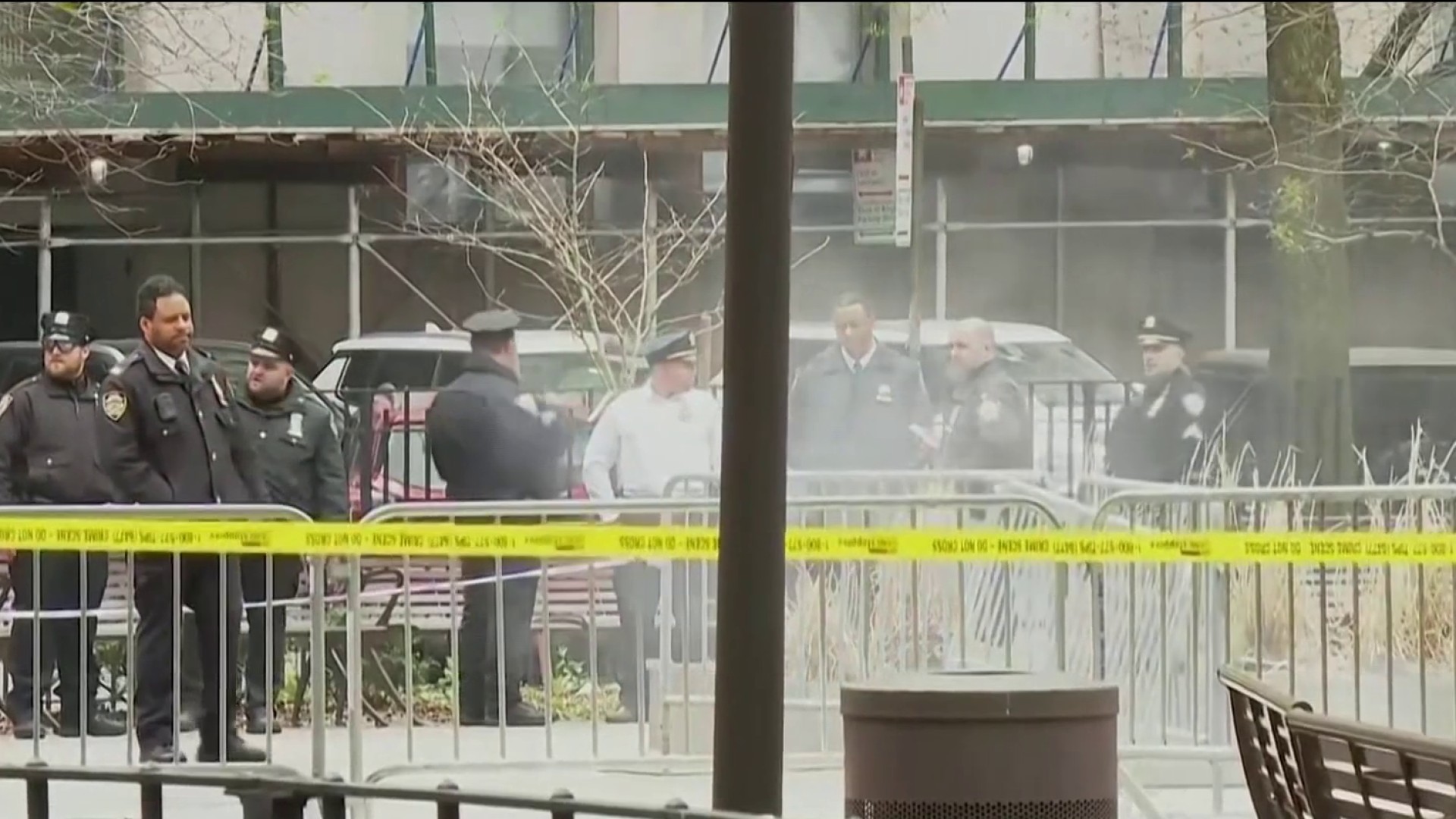Reports of targeted killings in areas overrun by the Taliban mounted Friday, fueling fears that they will return Afghanistan to the repressive rule they imposed when they were last in power, even as they urged imams to push a message of unity at weekly prayers.
Terrified that the new rulers would commit such abuses and despairing for their country's future, thousands have raced to Kabul's airport, where chaotic scenes continued unabated. People seeking to escape struggled to get past crushing crowds, Taliban airport checkpoints and U.S. bureaucracy. Video images showed crowds gathered in the dark outside the barbed-wire topped walls. Occasionally someone shot a stream of gunfire into the air.
What appeared to be American troops stood in the distance. In one dramatic image, a U.S. Marine reached over the razor wire atop a barrier and plucked a baby by the arm from the crowd and pulled it up over the wall.
Reports of planes leaving at least partly empty underscored how difficult it still is for people to get into the airport. In an indication of the extent of the chaos, the Belgian foreign affairs ministry confirmed that one of its aircraft took off from Kabul without a single passenger because the people who were supposed to be on board got stuck outside the airport.
Get Southern California news, weather forecasts and entertainment stories to your inbox. Sign up for NBC LA newsletters.
Also Friday, American officials confirmed to The Associated Press that U.S. military helicopters flew into Taliban-held Kabul to scoop up would-be evacuees, and President Joe Biden pledged to bring all Americans back from Afghanistan — and Afghans who aided the war effort, too.
“We will get you home,” Biden said from the White House.
The Taliban say they have become more moderate since they last ruled Afghanistan in the late 1990s and have pledged to restore security and forgive those who fought them in the 20 years since a U.S.-led invasion toppled them from power.
U.S. & World
News from around the country and around the globe
But many Afghans are skeptical, fearing that the Taliban will erase the gains, especially for women, achieved in the past two decades. Opposition to the takeover has included street protests — acts of defiance that Taliban fighters have violently suppressed.
An Amnesty International report provided more evidence Friday that undercut the Taliban's claims they have changed.
The rights group said that its researchers spoke to eyewitnesses in Ghazni province who recounted how the Taliban killed nine ethnic Hazara men in the village of Mundarakht from July 4 to July 6. It said six of the men were shot, and three were tortured to death. Hazaras are Shiite Muslims who were previously persecuted by the Taliban and who made major gains in education and social status in recent years.
Amnesty International warned that more killings may have gone unreported because the Taliban cut cellphone services in many areas they captured.
Separately, Reporters without Borders expressed alarm at the news that Taliban fighters killed a family member of an Afghan journalist working for Germany's Deutsche Welle on Wednesday. The broadcaster said fighters conducted house-to-house searches for their reporter, who had already relocated to Germany.
Meanwhile, a Norway-based private intelligence group that provides information to the United Nations said it obtained evidence that the Taliban have rounded up Afghans on a blacklist of people they believe worked in key roles with the previous Afghan administration or with U.S.-led forces.
In an email, the executive director of the RHIPTO Norwegian Center for Global Analyses said the organization knew about several threat letters sent to Afghans.
A report from the group that was obtained by the AP included one of the letters, but the AP could not independently verify the group's claims.
It’s not clear whether the reports of abuses indicate that Taliban leaders are saying one thing but doing another or whether they simply do not have full control over their forces. The scale and speed of their takeover seems to have challenged the leadership’s ability to control their fighters.
Under the Taliban’s previous rule, women were largely confined to their homes, television and music were banned, and public executions were held regularly.
Amid the uncertainty, thousands have tried to flee the country.
Mohammad Naim, who said he used to be an interpreter for U.S. forces, has been in the airport crowd for four days trying to escape. He said he put his children on the roof of a car on the first day to save them from being crushed by the mass of people. He saw other children killed who were unable to get out of the way.
He urged others not to come to the airport.
“It is a very, very crazy situation right now,” he said.
A widely seen video shared on social media showed some of the chaos when a U.S. Marine at the airport pulled a baby out of the crowd. A spokesman from the Marine Corps, Maj. Jim Stenger, confirmed that the Marine was a member of the 24th Marine Expeditionary Unit and said the baby was "cared for by medical professionals.” The child was later reunited with its father, and they are safe at the airport, Stenger said.
It was not clear when the incident happened.
The United States is struggling to pick up the pace of evacuations. American military planes paused flights from the airport for six to seven hours Friday due to a lack of places available to take evacuees, but they later resumed.
So far, 13 countries have agreed to host at-risk Afghans at least temporarily, U.S. Secretary of State Antony Blinken said. Another 12 have agreed to serve as transit points for evacuees, including Americans and others.
Biden's pledge to bring home all Americans and to evacuate all Afghans who assisted the war effort represented a potentially vast expansion of the administration’s commitments on the airlift so far. Tens of thousands of Afghan translators and others, and their close family members, are seeking evacuation.
European countries are also working to bring out their citizens and those who have worked with them. But Spanish Defense Minister Margarita Robles said Friday that the country's military transport planes are leaving Kabul partly empty in the tumult.
“Nobody’s in control of the situation,” Robles told Spanish public radio RNE.
Germany was sending two helicopters to Kabul to help bring small numbers of people from elsewhere in the city to the airport, officials said.
___
Akhgar reported from Istanbul, Santana from New Orleans. Associated Press writers Jan M. Olsen in Copenhagen, Denmark, Frank Jordans in Berlin, Barry Hatton in Lisbon, Kathy Gannon in Islamabad, David Rising in Bangkok and Rod McGurk in Canberra, Australia, contributed to this report.



